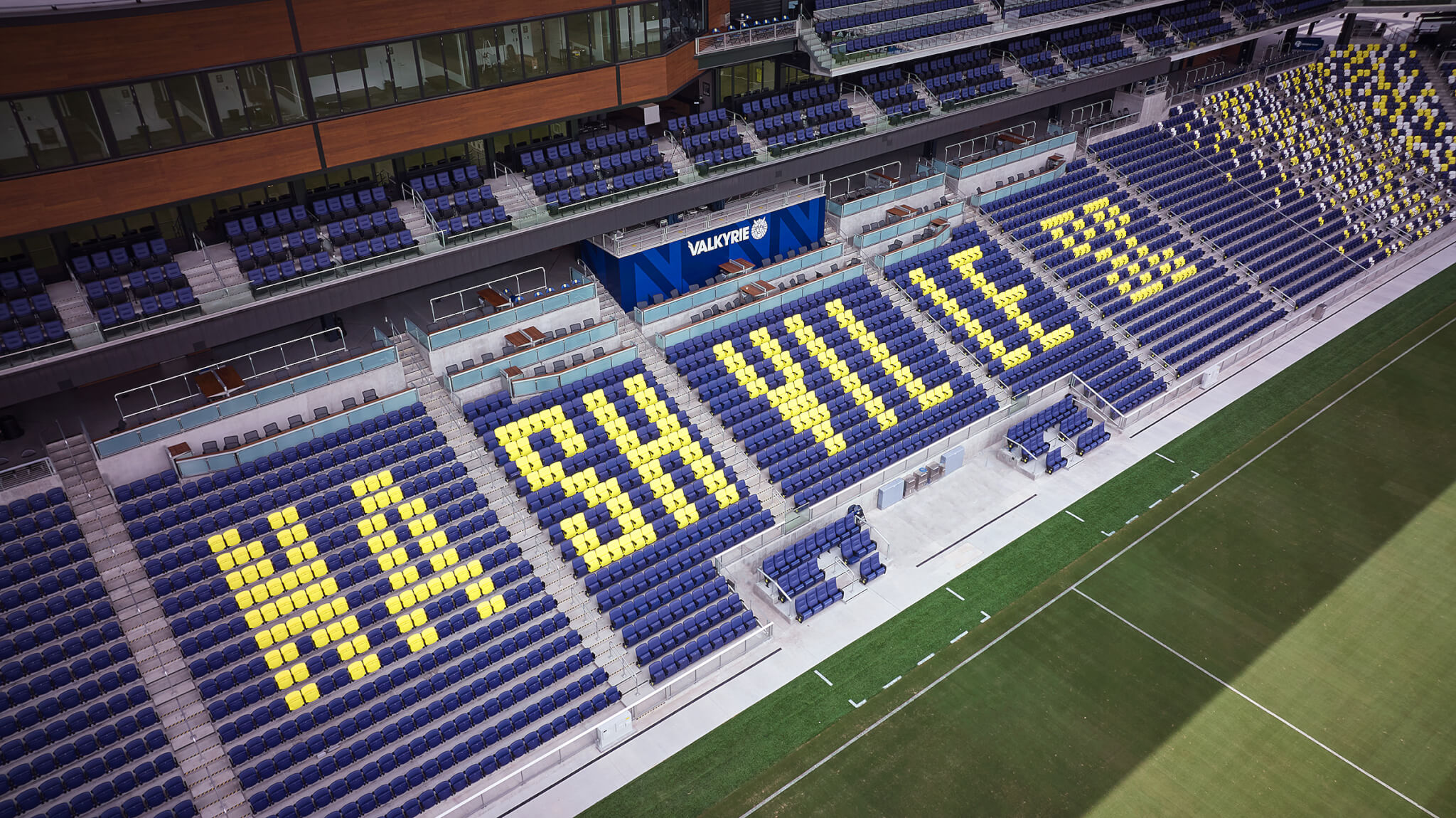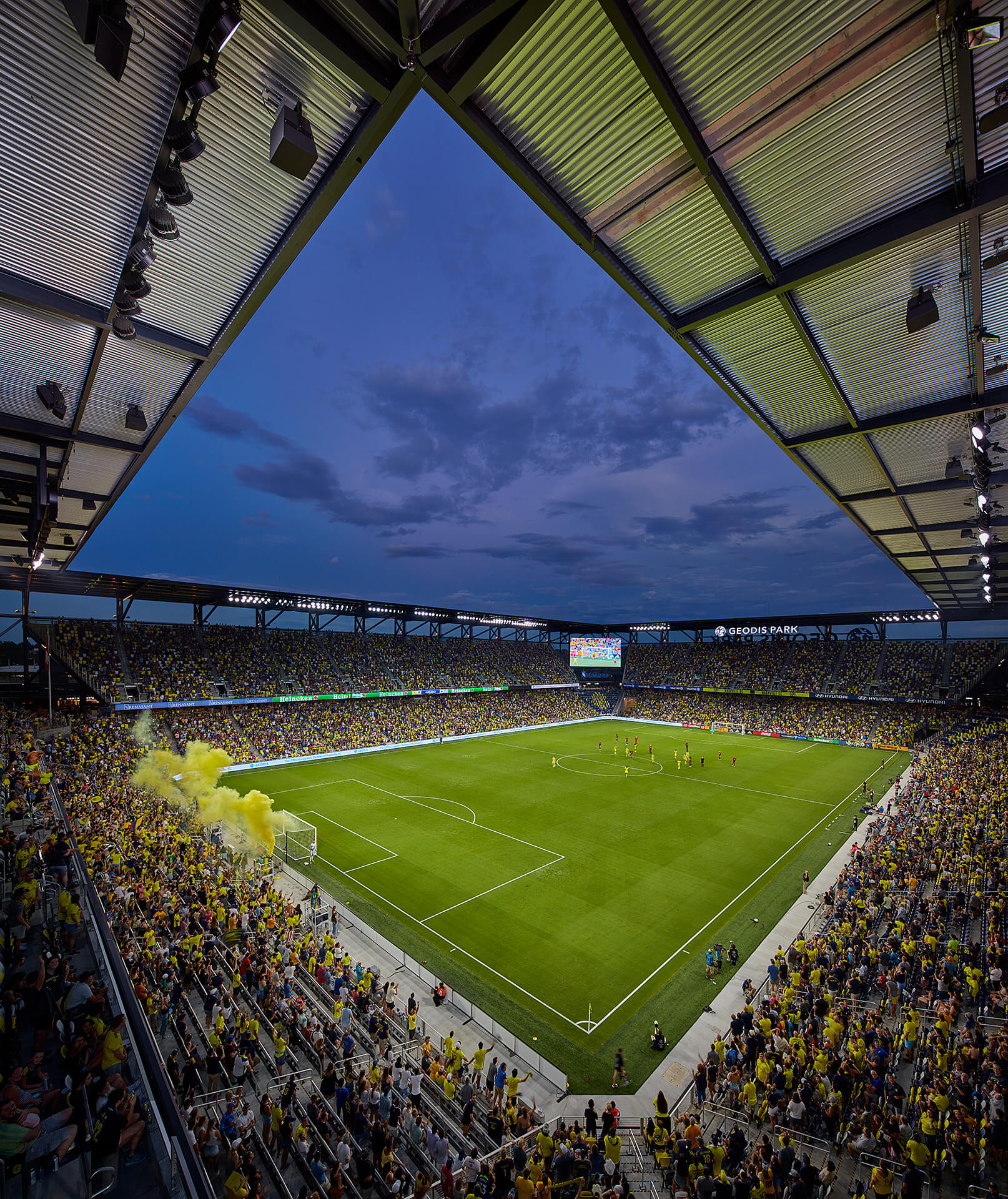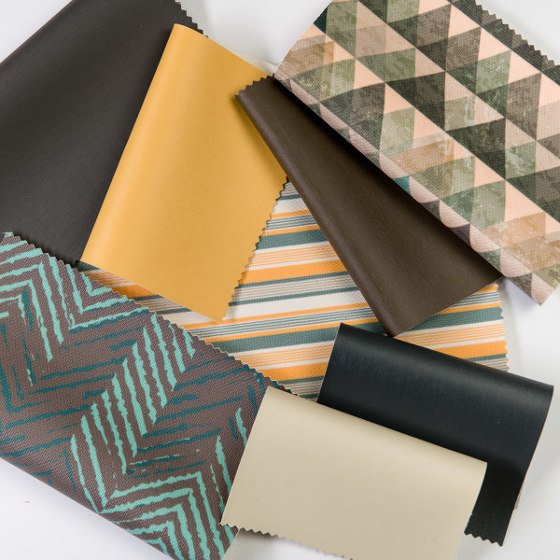Nashville SC wraps up its first regular season at the Populous- and HASTINGS-designed GEODIS Park
On October 2, Major League Soccer’s Nashville SC concluded its first regular season schedule at its new permanent home at GEODIS Park, a 30,1-seat stadium just south of Music City’s downtown core at the historic Nashville Fairgrounds complex. Nashville SC hosted its first (completely sold-out) match against the Philadelphia Union on May 1 at the freshly completed venue, which ranks as the largest purpose-built soccer stadium in the United States and Canada. The $335 million project—one not without ample controversy—was designed in partnership by Populous in the role of architect of record and design architect with Nashville’s own HASTINGS serving as design architect. The design team worked in close collaboration with Nashville SC, a relatively new club established in 2020 that played its first two seasons across the Cumberland River at the HOK Sport–designed Nissan Stadium while construction on GEODIS Park was underway.
While pro soccer is obviously the crowd-drawing raison d’être of the landmark new stadium, GEODIS PARK was also designed—this being Nashville—to host major concerts. Able to accommodate up 27,500 music lovers, the flexible, open-air venue was designed with the requisite back-of-house infrastructure for one-off concerts and tours, including a flex room for stage crews, integrated power sources, and a truck tunnel leading directly from a loading dock area to the field.
“GEODIS Park is a world-class stadium that speaks specifically to human scale,” said Bruce Miller, Populous Senior Principal and Managing Director | Americas, and Populous Principal-in-Charge. “The Nashville identity is seamlessly and authentically woven into the design and the fabric of this stadium through our collaboration with HASTINGS, which pairs innovation and high design to energize and serve Nashville SC, its fans and the city.”

As mentioned by Miller, the design team strove for a sense of authenticity in creating Nashville’s newest stadium, which takes form as an exposed steel structure ringed by a 360-degree canopy that soars above the stands. Its familiar, unfussy design is meant to be reflective of its location within the downtown-adjacent Wedgewood-Houston neighborhood. Once a gritty industrial zone, the Wedgewood-Houston of today is a buzzy creative hub dotted with converted warehouses and historic factory buildings. “The stadium expresses this juxtaposition with the high canopy structure representing the industrial aesthetic, and the brick-clad ground level structures that define the concourse representing the residential homes found in the neighborhood,” a press announcement detailed.
The design of GEODIS Park also isn’t meant to overwhelm visitors with garish, rah-rah fandom. While obviously very much the home of Nashville SC, the stadium embraces a more subtle, “lived-in” aesthetic with a warm materiality and an industrial edge. Bamboo lines the ceiling of the 65-wide concourse and wayfinding pays homage to the industrial heritage of the surrounding neighborhood. Bolstered by a robust public art program, murals and posters around the exterior of the stadium pay homage to Nashville’s rich history—particularly its musical legacy—while team slogans line the field tunnel and bright graphics depicting the club’s players and fans can be found hanging from its exposed steel beams.

GEODIS Park features a trio of club experiences: the swank Valkyrie Premiere Club at the middle center line, the music-themed WeHO Club on the north end, and the casual, sports bar–esque Lo Siento Goal Post Club on the south end. For those who want to get close to action, there’s a 3,150-square-foot safe standing supporter’s section incorporated into the bowl. The venue also offers a range of suite options, including a shared suite concept. With a small army of local vendors operating on-site, the all-important concession options—hot chicken, street tacos, pickle spear–topped hot dogs, and more—are, like the seating options, similarly diverse.
“A building of this scale and prominence presented an incredible opportunity to memorialize the industrial heritage of this rapidly changing neighborhood,” Dave Powell partner at HASTINGS told AN. “Our design solution celebrates the structural steel, painted black with white stenciled signage, creating a striking backdrop to the colorful tapestry of fans populating the stadium.”
GEODIS Park’s display boards—including two large displays in the field bowl along with ribbon boards and field boards—are by Daktronics, which also designed a display on the exterior of the stadium to “augment the community experience” pre-game, post-game, and during non-game day events.
“Designing spaces for our community is always rewarding, but a project of this scale, in a storied neighborhood such as this, and hosting the quantity and voracity of this fan base, is an unprecedented privilege for me,” Powell said. “Nashville SC recognized from the beginning that this stadium had to be uniquely Nashville. We were honored to represent our city in executing their vision.”

While Nashville SC fans have embraced the superlatively large, state-of-the-art new home of the club with gusto (the 2022 season was totally sold out), the lead-up to the development of the stadium, as mentioned, was mired in controversy and legal clashes. In its early stages, two separate lawsuits were filed against stadium owner Metro Nashville over concerns that the construction of the stadium would disrupt the annual Tennessee State Fair held at the Nashville Fairgrounds, which is also home to the Nashville Speedway, a monthly flea market, and an arena famous as a pro wrestling mecca. A resolution to halt the demolition of buildings to make way for the new stadium, a marquee element of a larger mixed-use redevelopment plan at the fairgrounds, was also introduced by Metropolitan Council member Steve Glover in August 2019 but ultimately voted down.
Stalled by litigation and a ballooning budget, demolition work at the Nashville Fairgrounds finally kicked off in March 2020 (the venue was supposed to be completed by SC Nashville’s inaugural 2020 season) after an agreement was reached between Nashville Mayor John Cooper and lead club owner John R. Ingram and amendments were made to the original stadium deal. A naming rights deal was finalized with locally based freight logistics company GEODIS in March 2022.



